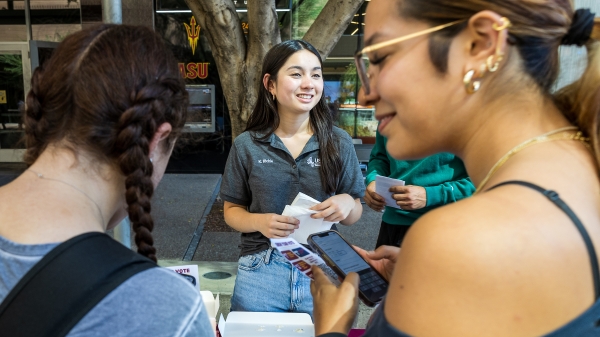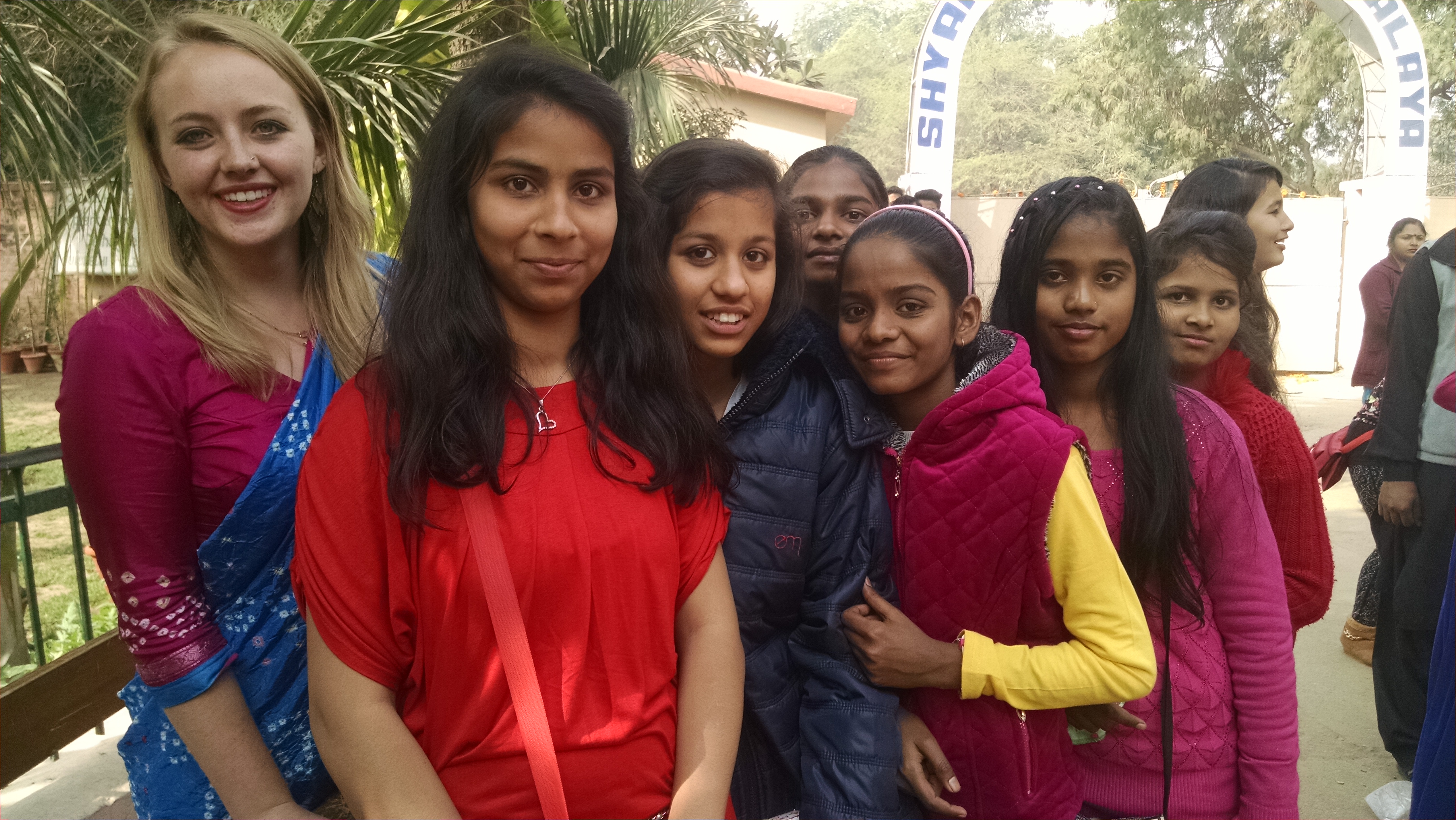For Eva Jeffers, one of the best things about instructing children in India is the teaching.
The hardest thing?
The teaching.
“Shoutout to anyone who is a teacher,” said Jeffers, who won a Fulbright scholarship and is now an English teaching assistant at a school in New Delhi.
Jeffers, whose hometown is Greeley, Colorado, earned a degree in global health, from ASU's School of Human Evolution and Social Change, in the College of Liberal Arts and Sciences, last year.
She works at a school that’s equivalent to a low-income public school as a speaking and listening teacher for 350 10- to 13-year-olds. The kids keep her on her toes, and slip her notes that say, “"Ma'am, you teaching are very good."
“I have gained so much confidence from being required to teach, but also so much humility and respect for teachers that teach well,” she said.
Jeffers answered some questions about her Fulbright experience:
Question: Why did you decide to apply for a Fulbright?
Answer: I had spent time in India before and knew I wanted to go back. I had gotten to work with kids and international students before, so I thought this would be the perfect trifecta — kids, English confidence building, in India!
Q. What is a typical day like for you?
A. The consistent piece is waking up at 6:30 a.m. and needing to be asleep no later than 11 p.m. — I never believed I could have such a reliable sleep schedule! Most weekdays I take the school bus and chat with kids on the way on the way to school, teach three or four 40-minute classes of 35 to 56 students, and spend the rest of the school day talking with kids who are on recess, keeping up on the latest teacher gossip, or my personal favorite — playing volleyball and basketball with anyone who wants to join. After school, I sometimes get to treat myself to a nap. Other days, I volunteer at a non-profit, teaching English to young women and children, attend Hindi classes, or try to learn a little more about the crazy city in which I live.
Q. What do you do on the weekends?
A. Some weekends I travel to other cities. No matter how long I have lived in this country, I am convinced I can never understand or see all of it! Other weekends, I sleep and read books. Usually, it ends up being a mix of laundry, exploring new or favorite parts of Delhi with other Fulbright or Indian friends, catching up with friends or family at home, and planning for the upcoming week. Some weekends qualify as a 'crazy adventure in another country' while others just feel like a part of normal life.
Eva Jeffers, left, and some of her students in India.
Q. What’s been the best part of your experience?
The kids. I have never taught before and it is INCREDIBLY difficult. Any teacher will tell you that the kids is always the best part. They are hilarious, persistent, troublesome, but also have a good heart. While some days I may never want to see them again, every morning when I get to school, I am so grateful to have their expectant smiles greet me with, "Good Morning, Ma'am!"
Q. Have there been any challenges?
A. We design our own curriculum, which brings a lot of freedom but also very little guidance. We don't give exams or grades, so classroom management and inspiring our students to work hard is difficult. We largely have to rely on charisma and creating exciting activities that are also controlled in small classrooms packed with students and only a blackboards for resources. The kids are at all language levels, so working with that is also difficult.
Additionally, my body had a hard adjustment and for about a month I was sick with some mysterious puking disease. Persevering was difficult, but worth it. Some days I wanted to go home, but I am so glad that I didn't.
Q. What’s next for you, after you return?
A. I am currently applying for a master’s in public health for healthy aging and community education. I want to work with communities and elderly refugee populations to breakdown cultural barriers.
Q. What would you tell someone who is contemplating applying for a Fulbright?
A. Go for it! I never expected to be here. But also, especially if you are applying to be an English teaching assistant, make sure that you want to teach. You get to travel and learn and experience cross-cultural things, but every day you wake up really early to go to school and teach classrooms full of kids. If you don't want to teach, do something else. If you want to teach, do everything you can to be here.
Also, understand the program and country you are applying to — every country, location and situation are incredibly different. There are six English teaching assistants in Delhi and our experiences are only slightly similar. So know what you are applying for but be flexible in adapting to where you are placed.
More Local, national and global affairs

Thunderbird at ASU, AUK student appointed as Ukraine’s deputy minister of education and science
Nadiia Kuzmychova, a student in the Master of Leadership and Management (MLM) program at Thunderbird School of Global Management at Arizona State University and the American University…

ASU creates pathways to public service careers for military students
The School of Public Affairs at Arizona State University is making careers in public service easier to access for military students.Next year, the school will start holding graduate courses on site…

Minting community leaders and stellar citizens: ASU’s Public Service Academy approaches 10-year milestone
Airports that are easier to navigate.Health care that is simple to access.Helping underrepresented youth reach college.These are realities that alumni of Arizona State University’s Public Service…

